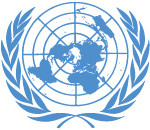国際倫理学
International Ethics
国際倫理学
International Ethics
この本は、カント的規範主義の観点から、国際社会を生きる市民が、国家や共同体とどのように付き合い、考え、行動するのかについて解説した教科書(テクスト)である(→「西洋倫理学の3つの伝統」「グローバルな正義」)。
国際倫理学(ウィキペディア)
"International ethics is
an area of international relations theory which concerns the extent and
scope of ethical obligations between states in an era of globalization.
Schools of thought include cosmopolitanism and anti-cosmopolitanism.[1]
Realism, Liberalism, and Marxism are ethical traditions that
conceptually address moral issues in international relations." - International ethics.
(政治的リアリズム研究の伝統の産物?)→ "Realism’s position is that ethics are secondary, or inapplicable to the affairs of international politics and believes in the primacy of self-interest over moral principle. The pursuit of self-interest by states is viewed as a right, or duty, making it a principle for Realists to uphold.[2] From their standpoint, the international environment is perpetually anarchic and competitive over resources. There is no overarching authority over states. Without a superior power to enforce order, ethics do not sustain in international affairs. Out of necessity, “international conditions compel states to defend their interests by frequently immoral means, and this compulsion of self-defense dissolves moral duties.”[3] It would be considered unethical by the principle of pursuing self-interest, for a state to compromise its goal for power and security."- International ethics.
(1)Baylis, Smith and
Owens, The Globalisation of World Politics, OUP, 4th ed, Ch 11/
(2)Nardin and Mapel, Traditions of International Ethics (Cambridge
Studies in International Relations), Ch 4/ (3)Nardin and Mapel,
Traditions of International Ethics (Cambridge Studies in International
Relations), Ch 4
"Realism is a school of thought in international relations theory, theoretically formalising the Realpolitik statesmanship of early modern Europe. Although a highly diverse body of thought, it can be thought of as unified by the belief that world politics ultimately is always and necessarily a field of conflict among actors pursuing power. Crudely, realists are of three kinds in what they take the source of ineliminable conflict to be. Classical realists believe that it follows from human nature, neorealists focus upon the structure of the anarchic state system, and neoclassical realists believe that it is a result of a combination of the two and certain domestic variables. Realists also disagree about what kind of action states ought to take to navigate world politics, dividing between (although most realists fall outside the two groups) defensive realism and offensive realism. Realists have also claimed that a realist tradition of thought is evident within the history of political thought all the way back to antiquity to Thucydides."- Realism (international relations).
出典:https: //en.wikipedia.org/wiki/International_ethics
国際倫理学 / リチャード・シャプコット [著] ; 松井康浩, 白川俊介, 千知岩正継訳、東京 : 岩波書店 , 2012.9. - (岩波テキストブックス)の章立て/
正戦論( jus bellum iustum)
"The purpose of the
doctrine is to ensure war is morally justifiable through a series of
criteria, all of which must be met for a war to be considered just. The
criteria are split into two groups: "right to go to war" (jus ad
bellum) and "right conduct in war" (jus in bello). The first concerns
the morality of going to war, and the second the moral conduct within
war.[1] Recently there have been calls for the inclusion of a third
category of just war theory—jus post bellum—dealing with the morality
of post-war settlement and reconstruction." - Just war theory.
Guthrie, Charles;
Quinlan, Michael (2007). "III: The Structure of the Tradition". Just
War: The Just War Tradition: Ethics in Modern Warfare. pp. 11–15. ISBN
978-0747595571.
■私たちは皆異なるから「平等」に処遇されることを希求することを保証するための倫理
リンク集
文献/その他の情報
